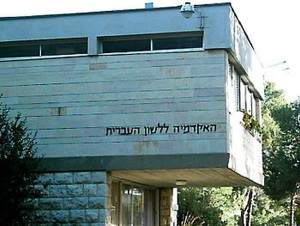As a technical matter the sentence can be translated in a literal fashion, but the result in Hebrew, though grammatically correct, would be nonsense.
 Jerusalem, September 20 – The Academy for the Hebrew Language voted this week to eliminate from its collection of English phrases still in need of a Hebrew equivalent an entry that indicates a felicitousness to retail customers that has no analog in Israeli culture.
Jerusalem, September 20 – The Academy for the Hebrew Language voted this week to eliminate from its collection of English phrases still in need of a Hebrew equivalent an entry that indicates a felicitousness to retail customers that has no analog in Israeli culture.
The Academy’s committee charged with soliciting proposed translations from advisory bodies decided on Monday not to include “The customer is always right” in its next round of foreign terms for which to find Hebrew translations. A committee spokesman explained that there was no need in Israel for such an expression, since the prevailing attitude among retailers in Israel has never been, and is never expected to be, compatible with such a sensibility.
“I’m actually surprised anyone thought to translate it in the first place,” said Professor Tzenna Monopol, a member of the committee. “Israeli retail culture is deeply rooted in the period immediately following the establishment of the state, when many goods were in short supply and rationing was the order of the day. Purveyors of merchandise might as well have enjoyed an exclusive right to sell certain things, and the attitude of retailers that then took hold in Israel has remained one of disdain for the customer, who is assumed to have no choice but to patronize this shopkeeper. The economic situation may have changed for the better in a dramatic way, but that element of customer treatment has never shifted. There is no reason anyone should have thought this expression needs a Hebrew equivalent.”
As a technical matter, explained Monopol, the sentence can be translated in a literal fashion, but the result in Hebrew, though grammatically correct, would be nonsense. “Chomsky gave the famous example of ‘colorless green ideas sleep furiously,’ and that the effect here would be much the same – a sentence where the parts of speech are used correctly and in the right order, but the specific words used together convey nothing meaningful,” he noted.
In a similar vein, the committee also declined to seek proposed Hebrew equivalents to “customer service” and non-sarcastic uses of “Excuse me” and “I’m sorry.” Those terms exist in Hebrew, but are never employed with a literal connotation, and the Academy could devise no way of conveying their literal sense independent of heavy sarcasm.
The last time the Academy rejected certain terms was January 2015, when the phrase “in the black,” meaning not in debt, was deemed irrelevant to the Israeli milieu, along with “queue up,” “on time,” and “Pooper-Scooper.”
Please consider supporting our work through Patreon.




